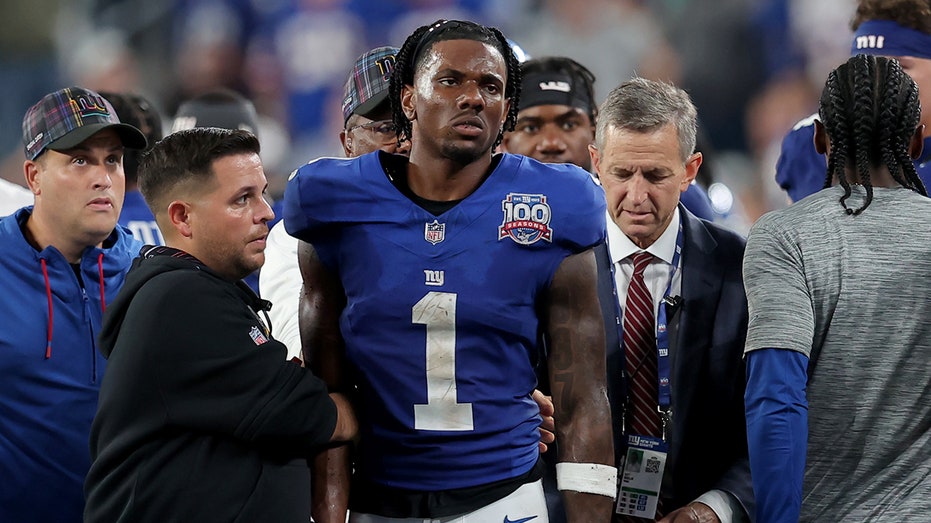Supreme Court: Trump Can Stay on Colorado Ballot, Forget the 14th Amendment
The Supreme Court unanimously ruled Monday that Donald Trump can appear on the Colorado state primary ballot, shutting down dozens of similar efforts to ban him from the election for his role in the January 6 insurrection.The nation’s highest court heard arguments in early February about whether Colorado could disqualify Trump from its ballot under Section 3 of the Fourteenth Amendment. The majority of the justices had seemed skeptical at the time, and apparently remained so by the time they issued their ruling.Trump is now eligible to receive votes in Colorado’s Republican primary on Tuesday. The justices’ decision means that Maine and Illinois, which have also disqualified Trump from their presidential primary ballots, must reinstate him.“Because the Constitution makes Congress, rather than the States, responsible for enforcing Section 3 against federal officeholders and candidates, we reverse,” the justices wrote in their ruling.Although the ruling was unanimous, the justices were divided in their reasoning behind it. Five conservative justices determined that the Fourteenth Amendment can only be enforced through a law passed by Congress.The three liberal justices agreed that Colorado couldn’t make such a massive decision on its own, but strongly disputed that the amendment can only be applied through legislation. Elena Kagan, Sonia Sotomayor, and Ketanji Brown Jackson slammed the majority for overstepping the bounds of the lawsuit at hand, and in doing so, “ruling out enforcement under general federal statutes requiring the government to comply with the law.”“By resolving these and other questions, the majority attempts to insulate all alleged insurrectionists from future challenges to their holding federal office,” the three justices wrote in their dissenting opinion.Justice Amy Coney Barrett did not rule on the dispute on congressional enforcement, but still, the ruling notes, “All nine Justices agree on the outcome of this case. That is the message Americans should take home.”The Colorado state Supreme Court ruled in December that Trump had engaged in insurrection during the January 6 attack and was therefore ineligible to appear on the primary ballot. Little more than a week later, Maine’s secretary of state also barred him from the state’s ballot.Multiple other states either are currently weighing or have decided whether Trump can appear on their ballot. The range in decisions prompted many to urge the Supreme Court to weigh in quickly, to avoid confusion ahead of the election.Trump’s lawyers had said repeatedly they expected the Supreme Court to rule in their favor, even hinting it would be because some of the justices owed Trump some form of allegiance. Trump appointed three of the current justices.Monday’s decision will provide a single rule for all states for the rest of the election cycle. But it will also likely shape how the Fourteenth Amendment’s language will be interpreted going forward.This story has been updated.

The Supreme Court unanimously ruled Monday that Donald Trump can appear on the Colorado state primary ballot, shutting down dozens of similar efforts to ban him from the election for his role in the January 6 insurrection.
The nation’s highest court heard arguments in early February about whether Colorado could disqualify Trump from its ballot under Section 3 of the Fourteenth Amendment. The majority of the justices had seemed skeptical at the time, and apparently remained so by the time they issued their ruling.
Trump is now eligible to receive votes in Colorado’s Republican primary on Tuesday. The justices’ decision means that Maine and Illinois, which have also disqualified Trump from their presidential primary ballots, must reinstate him.
“Because the Constitution makes Congress, rather than the States, responsible for enforcing Section 3 against federal officeholders and candidates, we reverse,” the justices wrote in their ruling.
Although the ruling was unanimous, the justices were divided in their reasoning behind it. Five conservative justices determined that the Fourteenth Amendment can only be enforced through a law passed by Congress.
The three liberal justices agreed that Colorado couldn’t make such a massive decision on its own, but strongly disputed that the amendment can only be applied through legislation. Elena Kagan, Sonia Sotomayor, and Ketanji Brown Jackson slammed the majority for overstepping the bounds of the lawsuit at hand, and in doing so, “ruling out enforcement under general federal statutes requiring the government to comply with the law.”
“By resolving these and other questions, the majority attempts to insulate all alleged insurrectionists from future challenges to their holding federal office,” the three justices wrote in their dissenting opinion.
Justice Amy Coney Barrett did not rule on the dispute on congressional enforcement, but still, the ruling notes, “All nine Justices agree on the outcome of this case. That is the message Americans should take home.”
The Colorado state Supreme Court ruled in December that Trump had engaged in insurrection during the January 6 attack and was therefore ineligible to appear on the primary ballot. Little more than a week later, Maine’s secretary of state also barred him from the state’s ballot.
Multiple other states either are currently weighing or have decided whether Trump can appear on their ballot. The range in decisions prompted many to urge the Supreme Court to weigh in quickly, to avoid confusion ahead of the election.
Trump’s lawyers had said repeatedly they expected the Supreme Court to rule in their favor, even hinting it would be because some of the justices owed Trump some form of allegiance. Trump appointed three of the current justices.
Monday’s decision will provide a single rule for all states for the rest of the election cycle. But it will also likely shape how the Fourteenth Amendment’s language will be interpreted going forward.
This story has been updated.



